Peer Health Exchange
Our mission is to build healthier communities with young people. Together, we create education opportunities for peers to share the tools and resources young people need to make healthy decisions. Our vision is that, with our partners, we will advance health equity and improve health outcomes for young people in under-resourced communities.
Visit this organization’s website to learn more
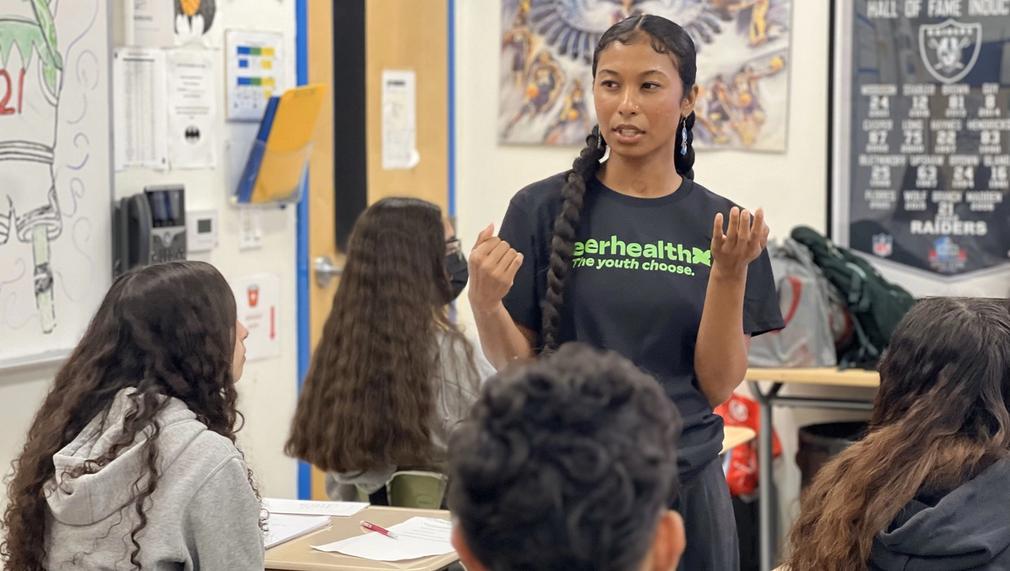
9 Submitted Ideas
 LIVE ·2023 Grants Challenge·🎉 2023 Goldhirsh Foundation Winner
LIVE ·2023 Grants Challenge·🎉 2023 Goldhirsh Foundation WinnerCo-Creating Health Solutions with Young People
Peer Health Exchange (PHE) will deliver inclusive health education to over 3,000 young people in LA classrooms, and beyond the classroom PHE will provide digital health solutions to over 10,000 of LA's young people. PHE's digital solutions, including our health app selfsea, reach young people anytime and anywhere they need support or connections to resources. PHE's programs are co-designed with young people and created to positively impact their mental health, sexual health, and substance misuse prevention.
 LIVE ·2025 Grants Challenge
LIVE ·2025 Grants ChallengeExpanding Youth Health Equity in Los Angeles
Peer Health Exchange (PHE) will expand the reach and impact of our digital health solutions web app, selfsea, and engage more local LA youth in our national Youth Advisory Board (YAB). Selfsea is co-designed with young people and created to positively impact their mental, behavioral, and sexual health.
 CONNECT ·2024 Grants Challenge
CONNECT ·2024 Grants ChallengeExpanding Youth Health Equity in Los Angeles
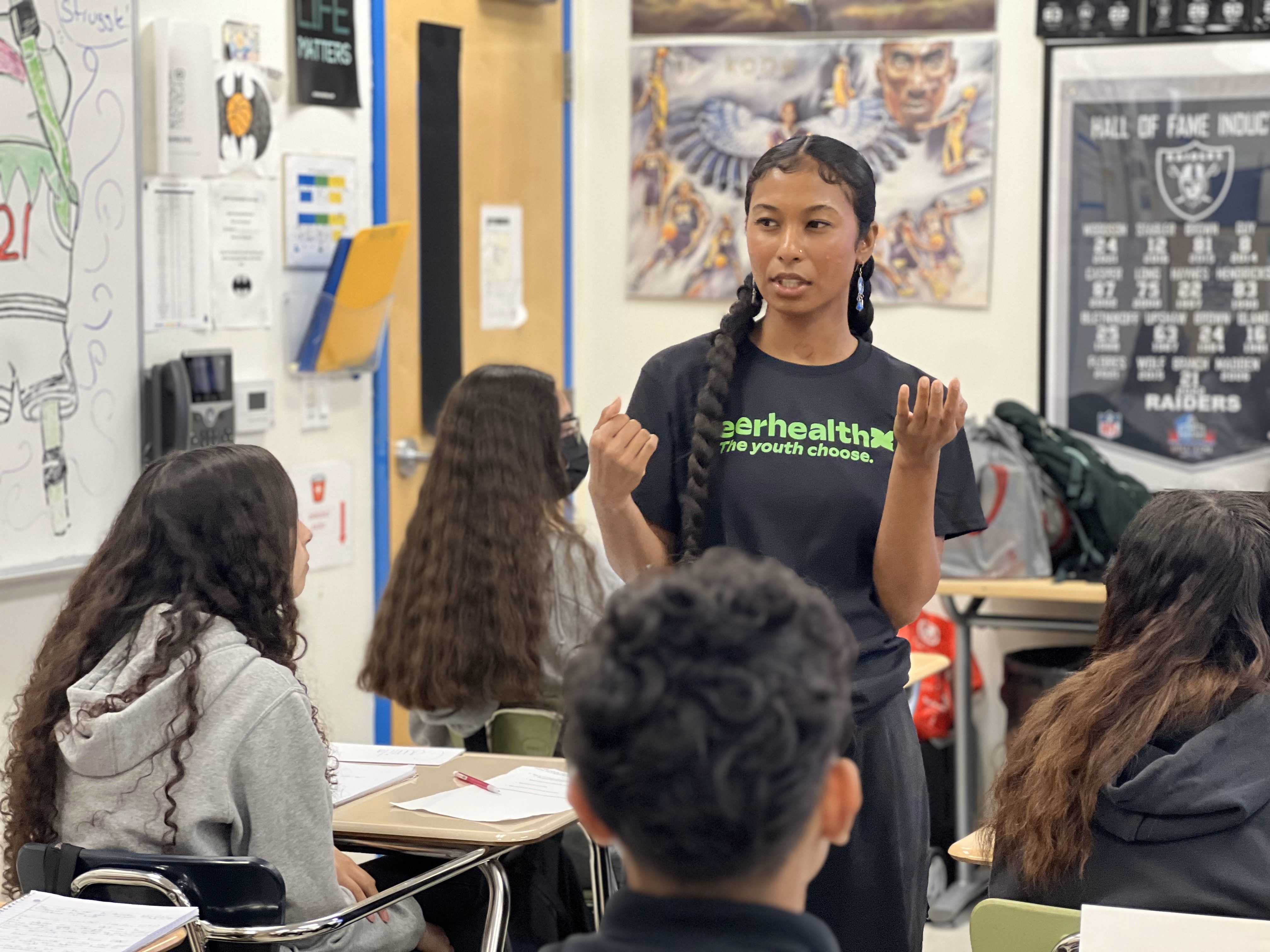
PHE will expand the reach and impact of our inclusive health education programs in LA County by serving 4,100 young people through our near-peer facilitated in-school programs, delivering digital health solutions to more than 10,000 of LA’s young people through our web-app, selfsea, and engaging more local youth in our national Youth Advisory Board. PHE's programs and curricula are co-designed with young people and created to positively impact their mental, behavioral, and sexual health.
 LIVE ·2021 Grants Challenge
LIVE ·2021 Grants ChallengeEmpowering LA's Youth to Make Healthy Decisions
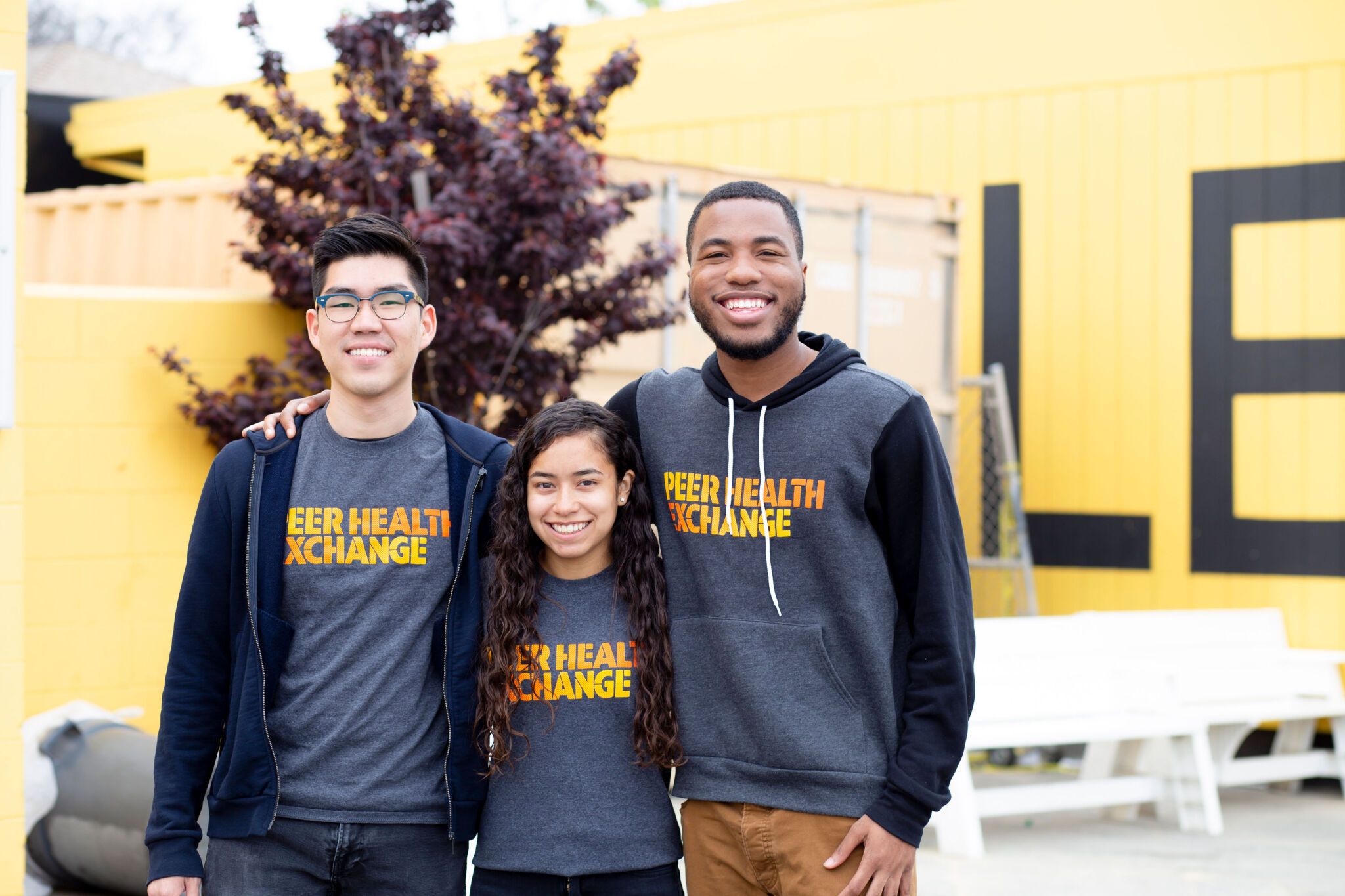
Peer Health Exchange seeks to deliver a virtual skills-based health curriculum to students who attend under-resourced high school across Los Angeles. For the first time in our history, we are also delivering health education content directly to young people beyond the classroom, via social media platforms and our new app. With our direct-to youth work, we aim to impact young people’s health knowledge, encourage help seeking behaviors, connect young people to care, and build communities for youth centered on health topics.
 LIVE ·2020 Grants Challenge
LIVE ·2020 Grants ChallengeEmpowering LA's Youth to Make Healthy Decisions
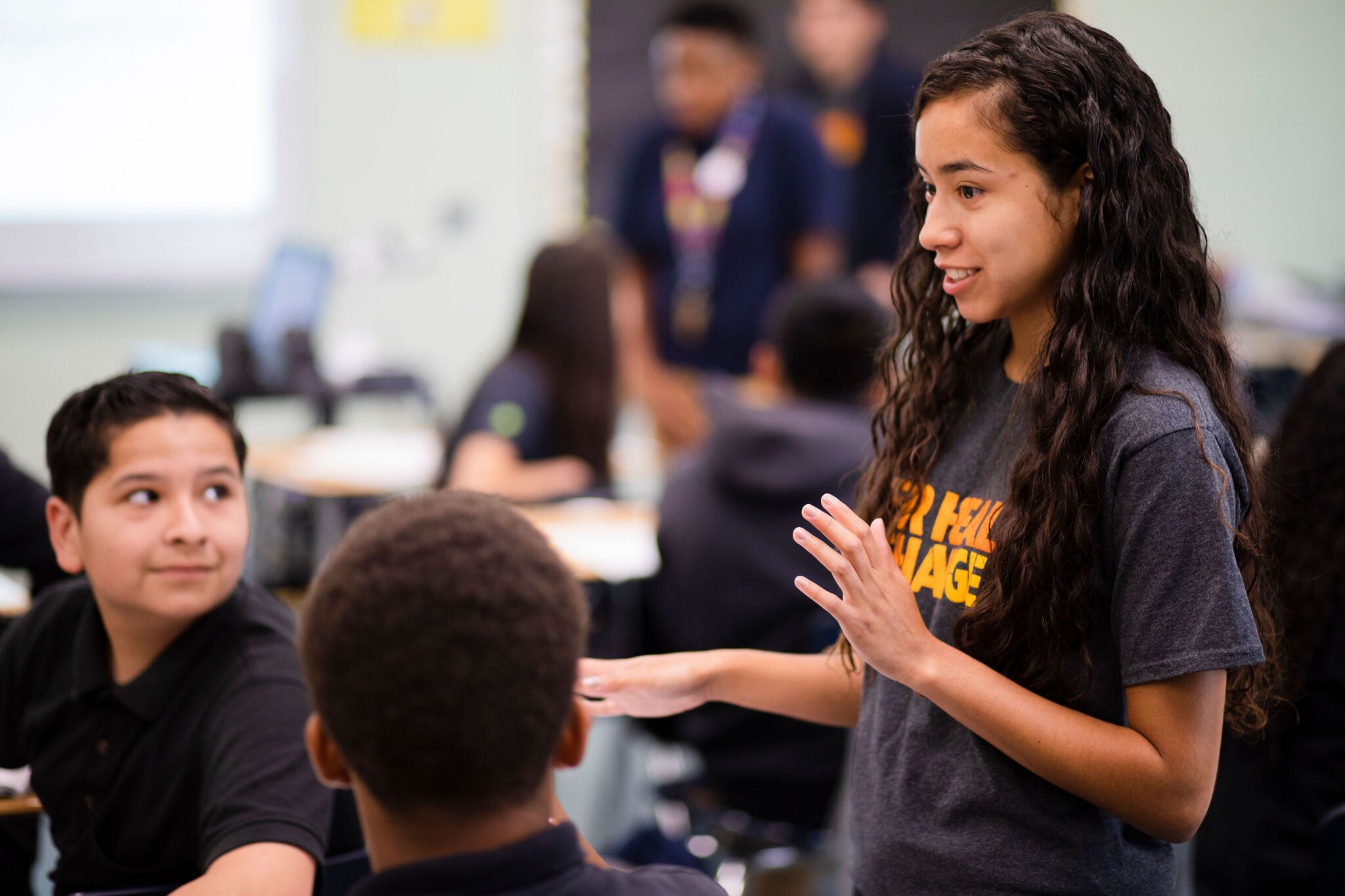
With LA2050’s support, Peer Health Exchange will train nearly 315 college student volunteers to teach a 14-week skills-based health program to over 3,350 9th grade students in under-resourced communities across LA. Through our skill-based curriculum we aim to increase help-seeking behavior for high school students experiencing poor mental health.
 LIVE ·2018 Grants Challenge
LIVE ·2018 Grants ChallengeAccess to Health Resources for Young People
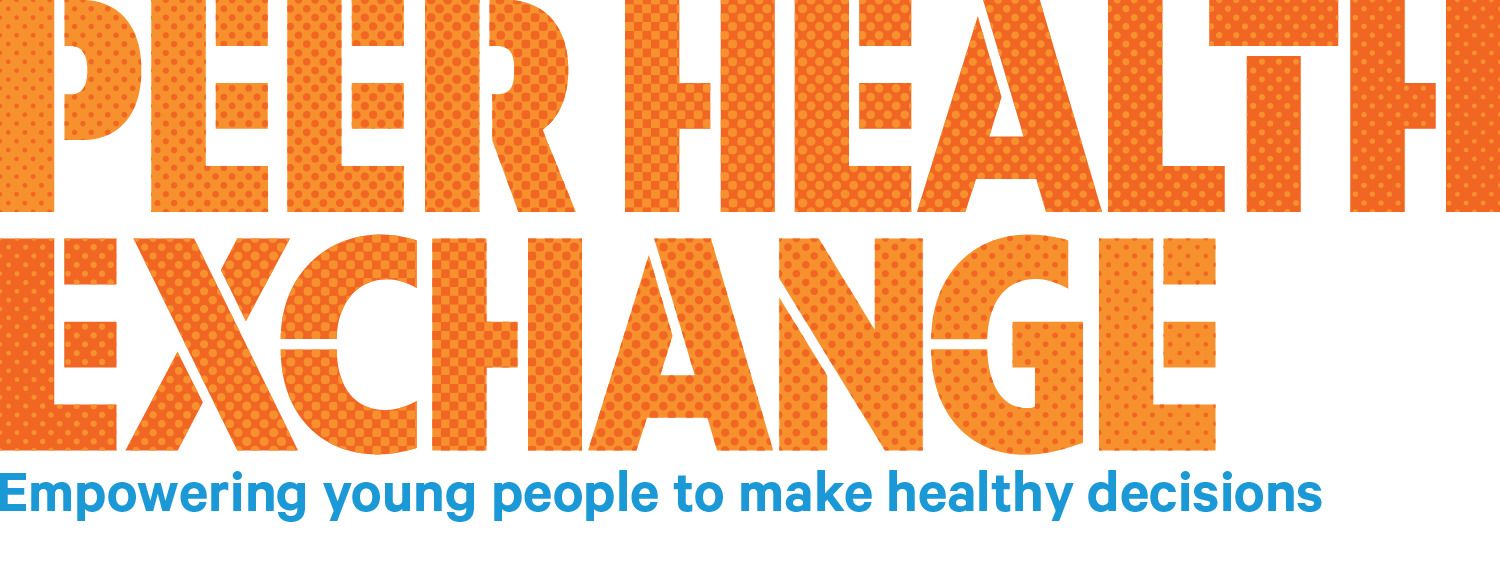
We seek to empower young people with the knowledge, skills, and resources to make healthy decisions through providing in-person clinic tours of a local community health center for 9th-grade students.
 LIVE ·2014 Grants Challenge
LIVE ·2014 Grants ChallengeEmpowering Teens to Make Healthy Decisions
PHE trains college student volunteers to teach a skills-based health curriculum in public high schools lacking health education.
 LIVE ·2014 Grants Challenge
LIVE ·2014 Grants ChallengeFrogtown Ribbon Gardens
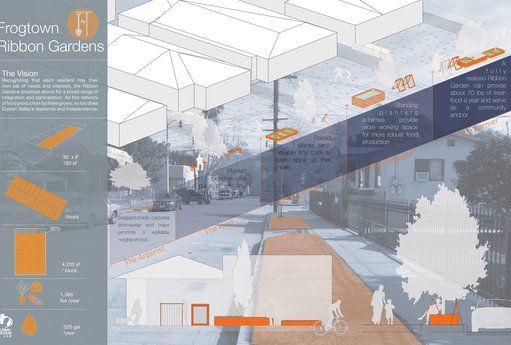
Frogtown Ribbon Gardens increase access to affordable and healthy food in Los Angeles Food Deserts by installing planters in public parkways
- 2013 Grants Challenge
Empowering Teens with the Knowledge and Skills to Make Healthy Decisions
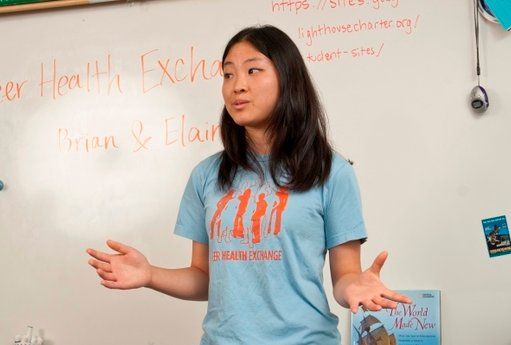
Peer Health Exchange was founded to address a growing crisis: teenagers today are engaging in risky behavior at alarming rates, harming their bodies and their futures. In Los Angeles,
• 1 in 5 teens is a binge drinker
• 2 in 5 are sexually active; & 39% of these teens did not use a condom the last time they had sex
• Nearly 1 in 5 indicate that they have never been taught in school about AIDS or HIV infection
• More than 1 in 10 has been physically abused by a boyfriend or girlfriend
• 1 in 10 has attempted suicide
(All stats used: 2011 Los Angeles Youth Risk Behavior Survey)
These serious health problems are in large part the result of teens lacking the tools they need to prevent them. In recent years, public schools’ increased focus on academic testing combined with budget cuts & staffing shortages have exacerbated this crisis by eliminating health courses in many schools. Many teens are not receiving comprehensive health education in this critical setting, & increasing numbers are left unprepared to protect themselves against the serious health risks they face. Teens who engage in risky behavior today are more likely to struggle or drop out of school, enter the criminal justice system, or live in poverty.
Peer Health Exchange’s mission is to give teenagers the knowledge and skills they need to make healthy decisions. We do this by training college students to teach a health curriculum in public high schools that lack comprehensive health education & in which a majority of students qualify for free/reduced lunch. Our vision is to build a health education organization that serves teens nationwide in order to give as many teens as possible the knowledge & skills they need to make healthy decisions. We are a national nonprofit founded in 2003, & began serving LA County in 2009. Since then, we have trained more than 750 college student volunteers to provide health education to over 8,800 low-income teens in LAUSD high schools.
Peer Health Exchange (PHE) has a unique 4-part program model:
1. PHE partners with LAUSD high schools that lack health education and where the majority of the students live at or below the poverty line. These students experience a disproportionate number of serious health risks, ranging from teenage pregnancy to obesity.
2. PHE recruits, selects and rigorously trains college students to teach a year-long health curriculum in these schools, consisting of 13 standardized health workshops on topics ranging from decision-making and communication, sexual health, pregnancy prevention, substance abuse prevention, healthy vs. abusive relationships, sexual assault prevention, mental health, and nutrition and physical activity. Over the 2012-2013 academic year, PHE Los Angeles is partnering with four colleges (University of California, Los Angeles, University of Southern California, California State University Northridge, and Occidental College) and 22 public high schools in the LA area. We plan to expand to serve even more LAUSD schools in the coming year, and estimate that we will reach 3,600 teens with 300 volunteers in the 2013-2014 school year. We are also piloting expansions of our program model, including training teens as health educators and affecting the entire school culture to support health and wellness. The latter initiative includes interventions like organizing school-wide health fairs and providing follow-up workshops for our host teachers to continue the dialogue with students after our volunteers have presented our program.
3. PHE gives teenagers the knowledge and skills they need to make healthy decisions. In the classroom, PHE high school students articulate their values and goals, learn basic, accurate health information, explore attitudes and perceptions of peer norms and peer pressure, analyze the influence of culture and the media on health, discuss barriers to healthy behaviors and strategies to overcome them, and identify and learn how to use the health resources in their communities. By addressing teen pregnancy prevention, common mental health issues such as depression, and substance abuse prevention, our program not only helps teens protect their health, but also supports them in their path to high school graduation (research has shown that unplanned pregnancy, mental health issues and substance abuse are three factors that directly hinder high school students’ progress to graduation).
4. PHE fosters a commitment to public service in LA college students, directly engaging them communities beyond their campus, and preparing them to serve as leaders in their communities throughout their lives. Many of these volunteers will go on to be doctors, teachers, public interest lawyers, and policymakers who maintain a commitment to serving low-income communities in Los Angeles thanks to the insights and experiences gained during their service with Peer Health Exchange.